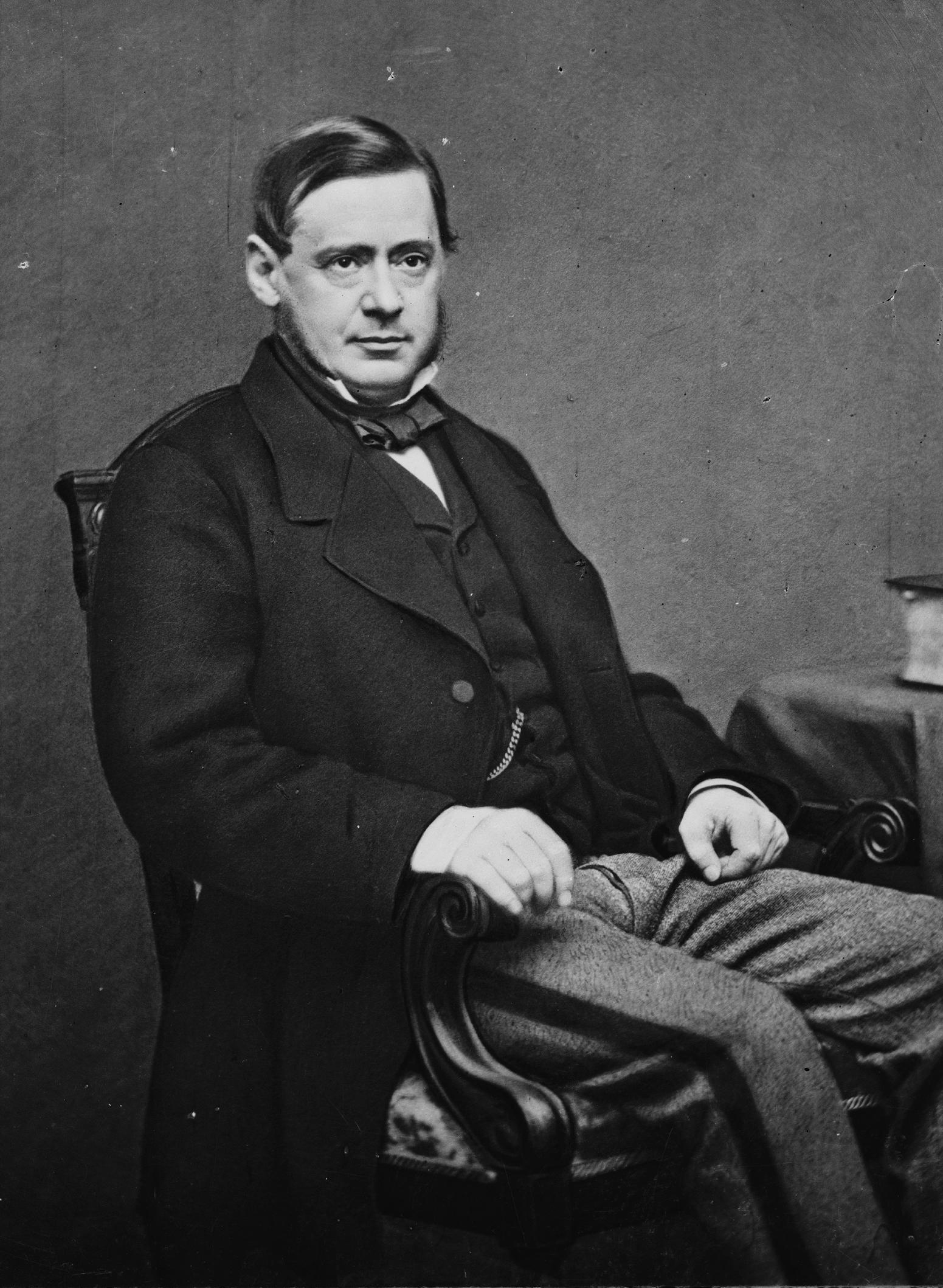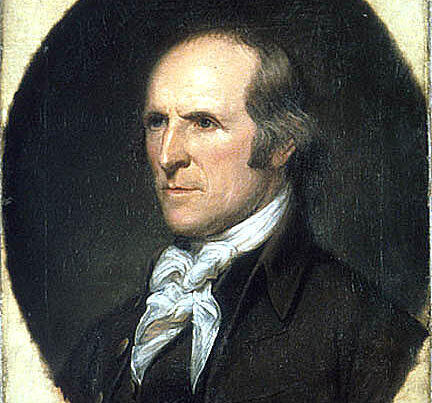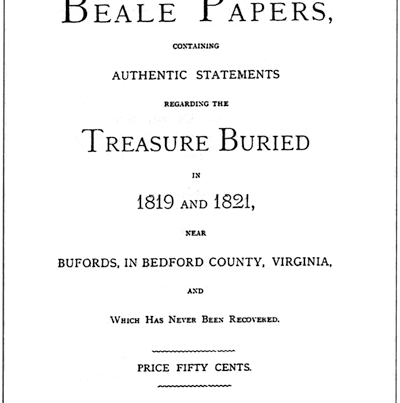In 1859 the Union of American States entered the final stages of its greatest crisis, one that would eventually split the country in two. America was then a young republic but growing larger and stronger with each passing year. Yet North and South were growing apart, seeing the world through a different lens. The North was more industrial, while the South was the center of American agriculture. Each section also saw the Union differently. These differences caused the national fracture, a breakup that would also have far-reaching consequences abroad, particularly for England. The British Empire, once the mother to its American children, now had a working relationship with the United States and a split could affect its financial well being, most notably a dependence on Southern cotton for its massive textile industry.
Viewing the situation from Washington was British Ambassador Lord Richard Lyons, who wrote frequent letters to Foreign Secretary Lord John Russell in London advising him of the situation in America. These letters offer insight into the viewpoint of the British towards the American crisis.[i]
Though the secession of the Southern States began in December 1860, the relationship between North and South in the American Union had been in a state of decline for many years, reaching its peak in the 1850s, a decade that seemed to jump from crisis to crisis as the two sections of the country battled it out over the main issues of the day. For many historians the major incident that did more to push the South toward secession was John Brown’s raid on Harper’s Ferry, Virginia in October 1859, an attempt by Northern fanatics to seize a federal armory and lead a slave revolt in the South. At this point, most Southerners hadn’t given much thought to disunion but now many moved into the radical, fire-eater camp as the realization hit that they were no longer safe in the Union, particularly when it was discovered that many Northerners found sympathy with the plot, which only further alienated the South.
Lord Lyons, like most Britons, was decidedly anti-slavery in attitude, yet he believed Brown’s attempt to be a “foolish affair.” He deplored such violence and “regretted” the incident, mainly because he feared it would “add to the excitement in the South against Abolitionist doctrines and indeed against all fair treatment of Coloured [sic] people – whether Slaves or Free.”[ii]
With Brown’s raid, the political situation was worsening with each passing day, as the country became more polarized. But with the demise of the Whigs in 1854, the United States only had one national party, the Democrats, yet its strongest wing was in the South. The Republicans, a new sectional-based party opposed to the spread of slavery, saw a chance at electoral victory in 1860, especially since Democrats seemed to be splitting apart along sectional lines.
Lyons saw what was happening to the fragile Union. “The fact is that the country is becoming more and more divided into an absolute Anti-Slavery and a Pro-Slavery Party,” he wrote Russell. “The President’s [Democrat James Buchanan] is the Pro-Slavery Party – and that Party does not like to have even the Slave Trade with Africa denounced.”[iii]
Though not openly discussed in Washington, Lyons believed that the Democrats, in order to maintain their control on both Congress and the presidency, would seek to add new slave states into the Union. “The success of their struggle for supremacy in the Senate depends upon their getting new States admitted into the Union as Slave States, and they are beginning to think that they must import Slaves, in order to have enough to send into these new States.” Most Southerners, though, did not want to see the African slave trade re-opened, yet Lyons believed the South eventually would look toward Mexican territory, with a possible future military expedition, in order to gain new slave states.[iv]
Democratic Party troubles began to mount in the spring of 1860 and Lyons paid close attention to the situation. The Democratic National Convention convened in Charleston, South Carolina in April 1860 for the purpose of choosing a presidential nominee for the fall election. If the party could rally around one candidate, then the possibility remained, however remote, that the Democrats could retain the White House. A split would be disastrous. Lyons watched with great interest and received reports from the British consul in Charleston. The party, Lyons wrote to Russell in London, possessed a “marked line of division between the Northern & Southern Branches…. On the question of forming the Platform, or declaration of the Principles to be held by the Candidates, all the Southern States voted one way – and the Northern all the other.” And Lyons knew the dangers this could lead to. “The South threatens to secede from the convention,” he continued, “if the Platform it advocates be not adopted. This would break up the democratic Party, which forms the only remaining bond between North and South.”[v]
The Democratic conflict did in fact lead to a break-up, as the Southern delegates walked out of the convention. Lyons knew the reason behind the struggle within the Democratic Party, as it was no big secret. Slavery continued to dominate national public discourse both within that party and in the general public as well. The South sought from the federal government protection for slavery in the territories and Lyons saw it as “one of the indications of the great struggle for political power going on between the North and the South; and the division of the democratic Party, which has taken place at Charleston, has gone very far to divide the Nation into two by a distinct geographical line.” Because of the split and because of the “complications in the modes in which the President may be elected,” it would be very difficult to determine the outcome of the national election. In addition, he continued, “Mr. Bunch [the consul at Charleston] thinks that the success of the Republican Candidate will be the consequence [of the split in the Democratic Party].”[vi]
Lyons admitted to Russell that it would not be easy to determine which party in power would be more beneficial to Britain. Each party had positive features as it related to England but each party also had negative aspects to consider. First the Republicans were solidly antislavery, a huge issue for the British, whereas the Democrats were controlled by proslavery forces and an end to slavery under their rule was unlikely. However, the Democrats did believe in free trade, another big issue for Britain, but the Republicans, especially under Lincoln favored high tariffs on foreign imports, namely from England, to promote domestic manufacturing. This would greatly injure British industries and was something neither Lyons nor Russell wanted to see.
Should the Republicans take the White House, Lyons did not believe it would make much difference as far as slavery was concerned. “I do not think the Republican President would really effect or attempt to effect [sic] much on the Slavery question. In order to get on at all with the Senate (and without the consent of the Senate he cannot make a single appointment to any office) he must allay the fears of the South upon this head. He would probably find it necessary to be very punctilious with England, because his Party is reproached with being led by its anti-slavery sympathies to be too friendly with us. A reproach which its conduct has certainly done nothing whatever to justify.” Lyons, like Russell, was a great critic of slavery but he also understood what an end to slavery in the South might mean to England. To Russell he confided that he did not “think that the Republicans will for the present effect anything against Slavery, whether in or out of office. But as Slavery cannot be abolished without at all events a temporary suspension of cultivation [of cotton] in the South, it is all important to us to have the means of getting cotton from some other quarters before abolition makes any great progress.” Not exactly the words of a serious egalitarian.[vii]
The tariff policy of the Republican Party was a great concern to Lyons. “‘Protection to Native Industries’ is part of the Republican Programme [sic], and so far as their advent to power would enable them to carry out their illiberal commercial views, it would be injurious to us in the extreme.” The ambassador was very attentive to such matters. The year before, he wrote Russell of his concern about the attitude of the Northern people. “The democratic spirit appears in this country [the North] to be all in favor of Protection and Exclusive Privileges. Happily the interest of the South is against a high customs tariff; and this checks the protectionist tendencies of the manufacturing North.”[viii]
Though the Democrats were having some trouble naming a candidate to represent their party in the November election, the Republicans maintained some semblance of party unity in choosing a nominee. William H. Seward, a U.S. Senator from New York, expected to be named the Republican candidate, but in a shocking move the convention selected Abraham Lincoln, who, in Lyons words, was “a man almost unknown, a rough westerner, of the lowest origin and little education.” Lincoln’s nomination surprised many, including Lyons, who told Russell that he had “never heard Lincoln even mentioned by the heads of the Party [in Washington].”[ix]
The Democrats decided to reassemble their convention in Baltimore in June. It was hoped by many that the party could come together to name a candidate that each section could agree on. Lyons informed Russell of his thoughts concerning this new attempt:
If the Northern and Southern sections of the Party cannot now come to an agreement, the Union may really be considered to be in some danger. For if all the Southern Members in Congress are on one side, and all the Northern on the other, the Southern will be in a minority, which with the increase of the Population and the admission of New States, will be daily diminishing, and the South would rather break away from the Union than endure this. If on the other hand the Northern & Southern sections of the Democratic Party can agree upon a Candidate for the Presidency and a Declaration of Principles, that Party will have a fair chance of bringing in its man for President, and of holding its own in Congress for some time longer.
But the Democrats could not remain united. Once again, the Southern delegates walked out and reassembled in a Southern Democratic convention in Baltimore to nominate their own candidate. “One would think,” Lyons wrote to Russell, “this must make the election of the Republican Candidate, Lincoln, certain,” a prospect Lyons believed was “ominous.”[x]
Along with both Democratic candidates and the Republican Lincoln, a new party also entered the race, the Constitutional Union Party, which nominated Tennessee Senator John Bell on a platform of saving the Union. The addition of Bell made the 1860 election a very rare one in American politics, with four major candidates in the contest. Lyons wrote Russell in July and described each candidate in detail. For the Republicans, Lyons believed their candidate would “undoubtedly have a much larger number of votes than any of his competitors, but he is by no means certain of having the absolute Majority of votes necessary [in the Electoral College] to ensure his ‘election by the People,’ as it is called.”[xi]
As for Lincoln, Lyons described him as a “rough farmer, who began life as a farm Labourer [sic], and got on by a talent for stump speaking. Little more is known of him.” As for Lincoln’s possible election, Lyons believed the “danger for his triumph lies in the probability of his trying to bring in a Protective Tariff, and to upset the Reciprocity Treaty. His Party are [sic] often hard against England, in order to counteract the suspicions to which they are espoused by their sympathy with English feeling on the Slavery question.”[xii]
The Democrats now had two parties and two candidates, one Northern and one Southern. The Southern Democrats nominated John Breckinridge as its candidate. His election, wrote Lyons, will produce a “continuation of the present system of Administration, perhaps with some more vigour [sic], (as he is a young man) and fiercer verbal attacks on Cuba. He is now Vice President, a well educated and well mannered man. He is a native of Kentucky, and is the Candidate of the ultra Pro-Slavery Party, which includes all the Southern States.”[xiii]
Northern Democrats nominated Stephen A. Douglas of Illinois, a U.S. Senator, who had defeated Lincoln in a race for that seat in 1858. The Northern Democratic Party, according to Lyons, was the “milder Pro-Slavery Party.” His chance at election was “thought at present to be but small. He began life as a carpenter, then became a small lawyer, and like Lincoln got on by his talent for stump oratory. He is a thorough political adventurer, and has been pursuing the Presidency for years by all the usual political maneuvers.” As for his stance toward England, would “no doubt be directed entirely by Party consideration at each moment, and by the popular cry.”11
Rounding out the slate of candidates was Bell, “the Candidate of the Neutral or respectable Party,” he wrote to Russell. However, most considered Bell “to have no chance at all.” But should the unlikely occur, Lyons did not want London to worry for Bell “would probably establish an honest & well meaning, but perhaps timid and weak administration.”[xiv]
Lyons watched each party closely and believed he knew how each would operate during the election, though not which one might prevail. “The tactics of the Republican Party are to get their Candidates elected by the People. The Democrats, having no chance of doing this since their [sic] split, aim at throwing the election into the House, and if they cannot elect their man,” then they would more than likely try to prevent “any election at all by the House, so as to have the office of the Vice President elected by the Senate [controlled by the Democrats].” But, he added, “there are a mass of contingencies and complications, which render it impossible to predict, with any approach to accuracy, the result of the Election. Perhaps I should add that it is equally difficult to form an opinion as to the success of which Candidate is the desired for England.” This last point is owing to the fact that each party had something positive to offer England but also negative policies as well.[xv]
By the fall of 1860, it seemed increasingly likely that Lincoln and the Republican Party would capture the presidency. The South, seeing this, began threatening to leave the Union should a “Black Republican” be elected. “[T]he minds of the President and his Cabinet, as well as those of most men here, are almost exclusively occupied by the alarm created by the proceedings in the South with regard to the Presidential Election. The Southern States now declare that if Lincoln be elected, they will not wait until he is installed in the Presidential Chair in March, but will take measures for their own security at once.” Lyons also heard rumors of impending state action, as a few Southern States, namely South Carolina, declared that upon Lincoln’s election “they will at once refuse to allow customs duties for the Federal forts to be collected within their limits.” However, Lyons believed that most of the rhetoric emanating from the South could be “attributed to the desire to influence the elections, which are close at hand.”[xvi]
In early November, Abraham Lincoln won election as the sixteenth president of the United States. Lyons was somewhat troubled at the prospect of a serious internal crisis in America and did not believe the South would actually make good on its threats. “Things look as if we are going to have troublesome times here, although it seems impossible that the South can be mad enough to dissolve the Union.” But if secession became an established fact, Lyon could at least find a silver lining for England. “If they could do it quietly, we might in some respects gain, as they would in all probability establish a low Tariff, and throw themselves paternally into our arms, if we would let them. But one cannot but tremble at the idea of serious troubles in the Southern States, which we are so entirely dependent upon them for cotton.”[xvii]
After Lincoln’s election several Deep South States began clamoring for action, especially South Carolina. “I do not think any conjectures as to the fate of the Union between these States can be made now,” Lyons wrote Russell in late November, “which are sufficiently probable to be worth recording. It seems however to be considered nearly certain that South Carolina will secede from the Confederation at latest on the 4th of March, when Mr. Lincoln takes office.” But many believed it “to be by no means improbable that this troublesome little State may secede in a month or six weeks time.” Lyons then advised Russell on the situation as it might relate to England:
The practical question which her secession would be likely to raise for us, would relate to the payment of customs duties by British vessels at Charleston. Upon seceding, the State will refuse to allow the Federal customs duties to be collected in its ports. The Federal Government may send United States Ships to collect the duties on vessels and their contraband to Charleston, before they can enter the port. On the other hand, the State of South Carolina may determine upon laying customs duties of its own, inside the port. If other States secede, the same thing may happen at other ports. This would place the Consuls in an embarrassing situation….
This was a serious situation for England, for Lyons understood the “general opinion… to be that no attempt will be made by the Federal Government to bring back a seceding State by force.”[xviii]
***************
[i] This article grew out of research I conducted in London while on a British Study Abroad trip in 2004. I read the actual letters of Lyons to Russell from 1859 to 1861 in the British Public Record Office (National Archives). This article is based on the views of Lyons in those letters as he observed the growing crisis and the early months of the war.
[ii] Lord Richard Lyons to Lord John Russell, October 25, 1859, in Lord John Russell Papers, Public Record Office, London, England.
[iii] Lyons to Russell, March 5, 1860.
[iv] Ibid.
[v] April 30, 1860.
[vi] May 8, 1860.
[vii] Ibid.
[viii] May 8, 1860 and July 11, 1859.
[ix] May 8, 1860.
[x] June 19 and June 25, 1860.
[xi] July 23, 1860.
[xii] Ibid.
[xiii] Ibid.
[xiv] Ibid.
[xv] Ibid.
[xvi] October 29, 1860.
[xvii] November 12, 1860.
[xviii] November 25, 1860.







So….The War of Northern Aggression was about Slavery & was Republican -vs- Democrat?!
Is this what I just read?
I’ve always argued the absolutely opposite.
The driving issue was expansion across the Mississippi River. Who was going to have control over the West? Frederick Jackson Turner’s “Frontier Thesis” of American history argues that the driving force that has shaped America has been the availability of land. From Turner’s perspective, geographic-political control of the then unsettled West was a crucial driving force into a civil war. What do you think? Paul Rux